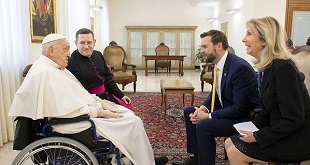
Accounting officers should be on the frontline
To say that corruption is wide spread in our society is an understatement. It touches everything and everyone but the poor and marginalised have the most to lose since wealthier citizens can privately source the services that corruption denies all of us. For the poor, those alternatives are out of reach.
Over the last two decades, a lot of innovation and experimentation has happened in response to corruption but even with these efforts, Uganda sits in 150th position out of 180, according to Transparency International’s Corruption
Perception Index. The response can and should be vastly improved.
For some reformers, this may require uprooting the current regime. After all, the regime had “fighting corruption” on its 10-point programme and has so far done too little from their perspective. For others, it is a call to roll back reforms including decentralisation and established special purpose agencies.
For sure, reforms in responding to corruption in today’s Uganda should be more than an addition of legislation, an institution or a lobby group, or support to one part of government. It requires a near-complete concerted overhaul. However, we should also be careful not to throw the baby out with the bathwater.
There is immense value to harness from the innovation and experimentation that has happened over the past two decades. These reforms teach us a lot about crafting the response that corruption requires.
What is needed and has worked before is, institutional transformative change spearheaded by the accounting officers of public institutions.
A number of public institutions have been transformed when their accounting officers/heads have driven the fight against corruption and maladministration, creating a service delivery culture from within.
They shaped, constrained and influenced people’s behaviour and choice of actions. Uganda Revenue Authority transitioned from very high to low levels of corruption under Commissioner General, Allen Kagina.
Water and related services can now be delivered more efficiently and the provider-consumer interaction has entirely changed for the better under the respective leaderships of Silver Mugisha and William Muhairwe.
Companies can be registered in one day now at the Uganda Registration Services Bureau, thanks to the leadership of Bemanya Twebaze, who turned it from maladministration into a service delivery institution.
This is what the entire public service needs to study, adapt and emulate. The lesson is that being clear that no one size fits all is important in this struggle.
If properly incentivised, supported and called to account, institutional heads/accounting officers, can do more than any other system to reduce opportunities for corruption, waste and mismanagement.
Presently, accounting officers wait for the fraud to be detected and sanctioned externally by the so called “accountability institutions”: the Inspectorate of Government, Auditor General’s Office and the PPDA or some whistle-blower.
Others stress the need for speedy investigations into misconduct by public officials in their institutions. All these actions constitute shirking one’s duties. Thinking about a service value chain is similarly essential –service delivery and corruption perceptions alike respond often not to a single institution’s contribution, but to the overall levels across the public sector.
If URA drastically reduced fraud within its ranks, and Ministry of Lands did not, a service beneficiary seeking for
registration of the land title may not feel the effect.
If the spirit of enterprise, bold innovation and transformation is to survive and spread leading to leaps in service delivery, leaders of institutions like NSSF, URA, UNRA, URSB, NWSC in which a culture of service delivery has most
prospered, must champion it elsewhere within the public sector.
Working with other service delivery institutions to reveal and address their fraud/waste and mismanagement vulnerabilities will be a good start. Robust partnerships focused on these vulnerabilities could stimulate new forms
of fraud-elimination innovations and service delivery enhancers that we can all not imagine now.
At the same time, treating all accounting officers as equals by the anti-corruption efforts misses the fact that three quarters of the national budget delivering 65% of the services come from just a handful of institutions.
Starting off with intense packages of support and incentives to selected service delivery agencies, would leave many excluded, but might break the impasse of no/low action, and might push enough of the institutions onto a steeper service delivery trajectory to benefit all – and that can be widely replicated.
Just as accountability institutions have to think differently about the role of accounting officers in the response to
corruption, so too must service users, civil society, media, political leaders, private sector and academia.We all must support the accounting officers to up their game in accountability.
Media, academia, private sector and NGOs efforts should contribute to a more granular understanding of the magnitude of corruption and accountability issues, and bring their wisdom to bear on potential solutions. Sanctions, the most widespread response currently, should be left for what they can definitely achieve- signal, obtain general
deterrence, and reinforce the measures introduced by accounting officer.
****
Valentine Namakula is the Director of the Strengthening Uganda’s Anti-Corruption Response-Technical Advisory Facility (SUGAR-TAF), a UK and EU-funded programme.
 The Independent Uganda: You get the Truth we Pay the Price
The Independent Uganda: You get the Truth we Pay the Price



